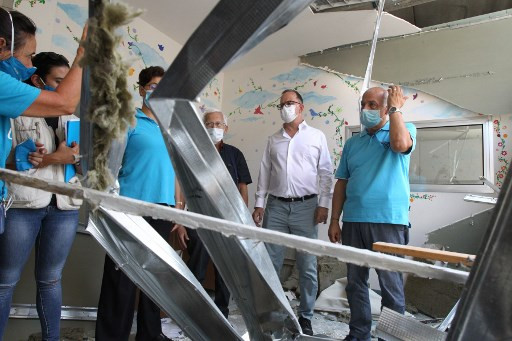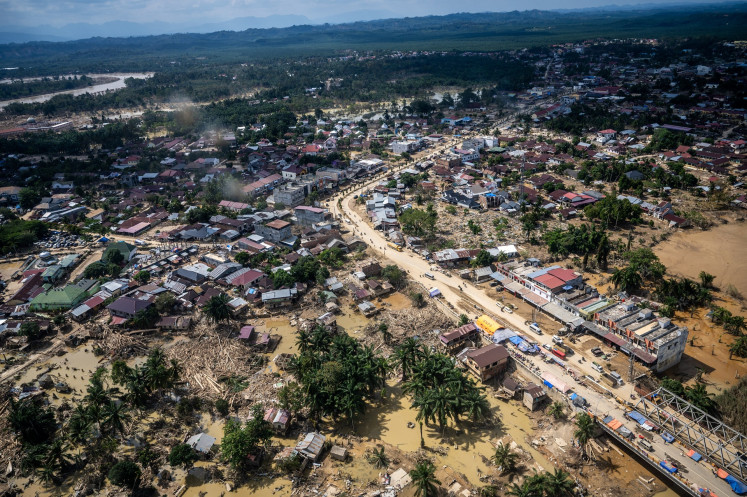Popular Reads
Top Results
Can't find what you're looking for?
View all search resultsPopular Reads
Top Results
Can't find what you're looking for?
View all search resultsPost-blast Lebanon says hospitals nearly at COVID-19 capacity
Change text size
Gift Premium Articles
to Anyone
L
ebanon's health minister warned Monday that hospitals are reaching maximum capacity to treat novel coronavirus patients after the deadly Beirut blast overwhelmed clinics and triggered a spike in COVID-19 cases.
"Public and private hospitals in the capital in particular have a very limited capacity, whether in terms of beds in intensive care units or respirators," the minister, Hamad Hassan, told a press conference.
"We are on the brink, we don't have the luxury to take our time," he warned, urging authorities to take the "hard decision" to impose a new two-week lockdown to stem the spread of the virus.
Lebanon has seen a spike in coronavirus-related cases and deaths in recent weeks, and they have hit new records in the aftermath of the massive explosion that ripped through large parts of Beirut on August 4.
The disaster killed 177 people and wounded more than 6,500, many hit by falling debris and flying glass as windows shattered.
That sparked pandemonium in the capital's already pandemic-stricken hospitals.
Lebanon reported a one-day record of 456 new infections on Monday, bringing the total number of infections to 9,337, including 105 deaths since the start of the outbreak in February.
A previously planned lockdown was scrapped in the wake of the explosion, which flattened neighborhoods near the port and left thousands homeless.
"In the capital, the intensive care units and the departments set up for the coronavirus in public hospitals are full," the minister told Voice of Lebanon radio.
"In most private hospitals that receive coronavirus patients, intensive care unit beds are [already] occupied" by COVID-19 patients, he added.
'Out of service'
The minister said the situation was exacerbated after several Beirut hospitals were hit by the colossal port explosion and left "out of service".
The World Health Organization on August 12 said more than half of 55 healthcare facilities evaluated by the agency were "non-functional", three major hospitals were out of operation and another three were running at well below normal capacity.
The minister said chaos in Beirut after the blast, Lebanon's worst peacetime disaster, made it difficult to enforce compliance with pandemic precautionary and preventive measures.
"Our ability to control behavior in the face of the virus is more limited," the minister said.
He cited "families going to hospitals to look for the wounded or missing," but also the mobilization of healthcare workers and citizens to seek or provide aid after the blast.
The explosion was caused by a fire in a warehouse where, according to authorities, a huge amount of ammonium nitrate had been stored for years.
A judge leading investigations into the blast issued a preliminary arrest warrant Monday against customs director-general Badri Daher, a judicial source told AFP.
Since the explosion, thousands of volunteers have helped clean up rubble-strewn streets and distribute aid, while protesters have taken to the streets against a government widely blamed for the negligence that led to the disaster.
Health officials have warned that the chaos following the blast risked creating a further spike in infections.
The head of a major public hospital, Firass Abiad, has cautioned that, as attention has shifted away from the pandemic after the explosion disaster, "we cannot afford to allow the virus to go unchecked".









